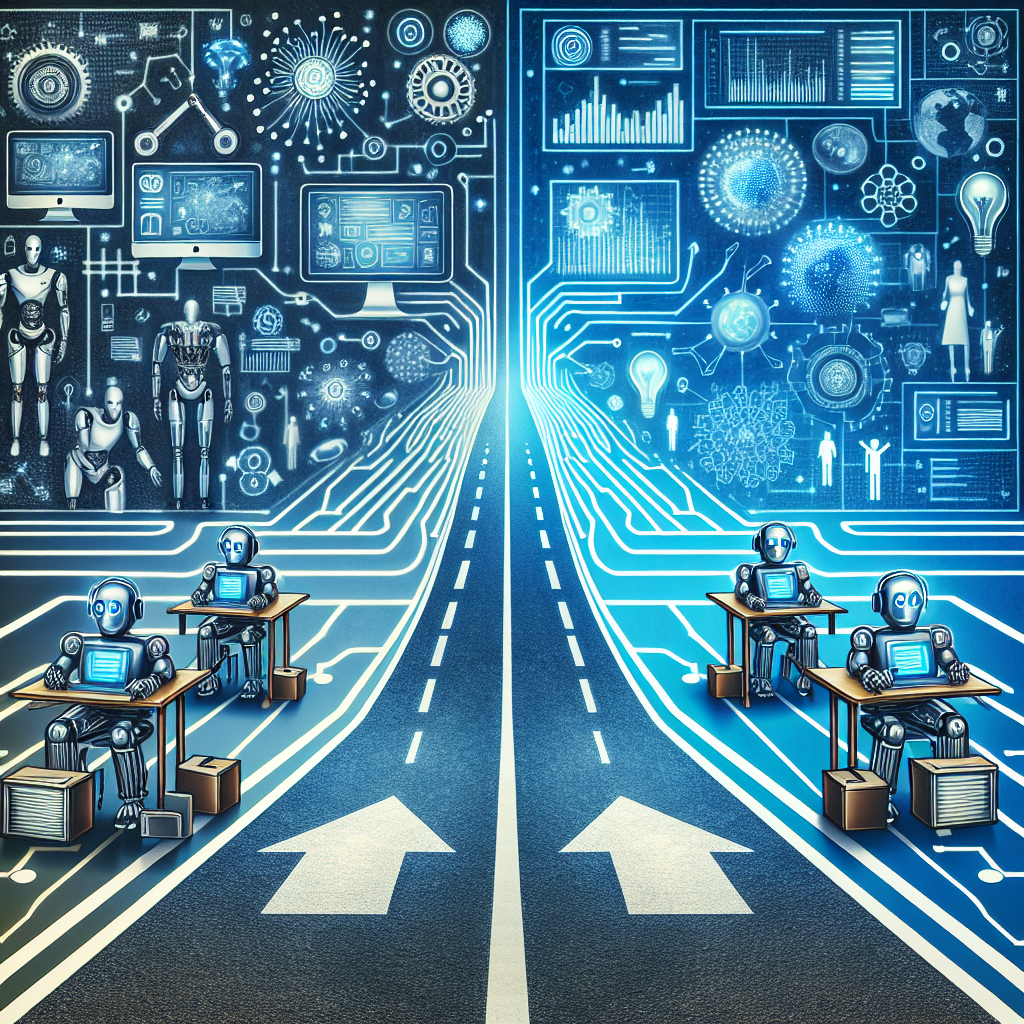Artificial General Intelligence (AGI) is a concept that has been the subject of much debate and speculation in recent years. AGI refers to a form of artificial intelligence that is capable of performing any intellectual task that a human can do. This includes tasks such as reasoning, problem-solving, learning, and understanding natural language. While AGI is still largely theoretical, there are many experts who believe that it could become a reality in the not-too-distant future.
One of the major concerns surrounding the development of AGI is its potential impact on the job market. Many fear that the rise of AGI could lead to mass unemployment as machines become increasingly capable of performing tasks that are currently done by humans. This has led to a heated debate about the future of work and the role that automation will play in shaping it.
The fear of mass unemployment due to automation is not a new one. Throughout history, advances in technology have often led to the displacement of certain types of jobs. For example, the rise of the automobile led to the decline of the horse and buggy industry, while the advent of the internet has transformed the way we communicate and do business. However, many argue that the rise of AGI represents a unique challenge, as it has the potential to automate not just manual labor, but intellectual work as well.
Proponents of AGI argue that the technology has the potential to revolutionize the way we work, making us more productive and freeing us from mundane tasks. They point to the fact that automation has historically created more jobs than it has destroyed, as new industries and opportunities emerge to take the place of those that have been automated. They also argue that AGI could lead to a more equitable distribution of wealth, as machines take over tasks that are currently done by low-wage workers.
However, critics of AGI are quick to point out that the technology poses unique challenges that previous forms of automation did not. For example, while machines have historically been able to outperform humans in tasks that require physical strength or speed, AGI has the potential to outperform humans in tasks that require creativity, intuition, and emotional intelligence. This could lead to a situation where a small elite of highly skilled workers control the means of production, while the rest of the population is left without work.
So, will automation lead to mass unemployment? The answer is not clear-cut. While it is true that automation has the potential to displace certain types of jobs, it is also true that new industries and opportunities will emerge to take their place. The key question is whether society will be able to adapt to these changes and ensure that the benefits of automation are shared equitably.
One potential solution to the challenges posed by automation is the concept of universal basic income (UBI). UBI is a form of social security in which all citizens receive a regular, unconditional sum of money from the government, regardless of whether they are employed or not. Proponents of UBI argue that it could provide a safety net for workers displaced by automation, allowing them to retrain for new jobs or pursue other interests without the fear of financial insecurity.
Another potential solution is the concept of job guarantees. Under a job guarantee program, the government would guarantee a job to anyone who wants one, at a living wage. This would ensure that everyone who wants to work has the opportunity to do so, even as automation displaces certain types of jobs.
Ultimately, the future of work in the age of AGI will depend on how society chooses to respond to the challenges posed by automation. While there is no doubt that automation will lead to significant changes in the job market, it is up to us to ensure that those changes are managed in a way that benefits everyone.
FAQs:
Q: Will AGI lead to mass unemployment?
A: While AGI has the potential to automate certain types of jobs, it is also likely to create new industries and opportunities that will offset these losses. The key will be to ensure that the benefits of automation are shared equitably.
Q: What is universal basic income?
A: Universal basic income is a form of social security in which all citizens receive a regular, unconditional sum of money from the government, regardless of whether they are employed or not. Proponents argue that it could provide a safety net for workers displaced by automation.
Q: What is a job guarantee?
A: A job guarantee is a program in which the government guarantees a job to anyone who wants one, at a living wage. This would ensure that everyone who wants to work has the opportunity to do so, even as automation displaces certain types of jobs.

